Soil and Gut Health
Herbicides
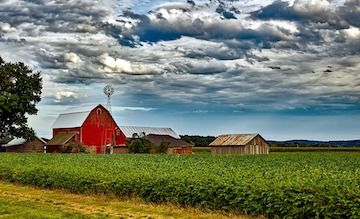
GT (Glyphosate-tolerant) crops were introduced into our agricultural system in 1996 and have spread throughout our world. It is estimated that 85 present of our global crop lands are planted with (GM) genetically modified crops. Roundup which is the most widely used commercialized herbicide primary ingredient is glyphosate is the choice for most farmers around the world.
Finding studies that haven’t been funded by self interested corporations and government bodies has been difficult. Good news for those of us that wish to read alternative reviews and research, there are now new studies, however they are not getting reported by the US media or scientific journals.

I figured it’s because scientist, universities, and the media don't want to bit the hand that feeds them.
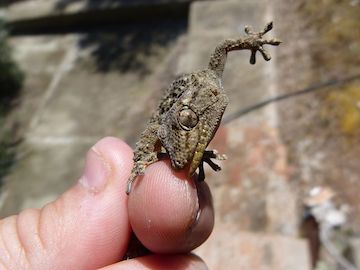
Regulators have looked the other way for years regarding the emergence of super-weeds, allergens, and sterilization of our agricultural soils. More than 1.8 million tons of glyphosate since its introduction in 1974. Worldwide, 9.4 million tons of the chemical have been sprayed onto fields, 2016 Report.
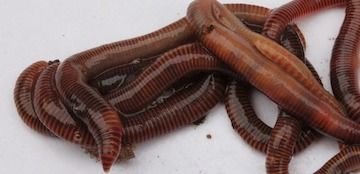
It has been found glyphosate deactivates the shikimate pathway, which is used to transport essential enzymes and minerals, nutrients essential for plant growth and immune systems. Most forms of life have gut bacteria with shikimate pathways, you would think that scientist would know that.
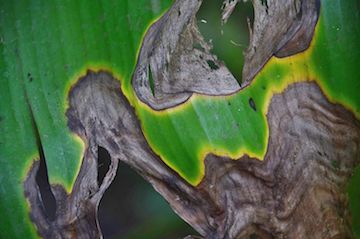
One of the reasons glyphosate has been promoted safe is because mammals don’t have a Shikimate pathway. However, our gut biome does and our food, dirt and even the air we breath is full of glyphosate.

When I first read about the adverse effects of glyphosate on my gut bacteria I immediately thought about the flora and fauna found in dirt, which work symbiotically with plants as a transport system for essential nutrients absorbed through the plants roots. I am so thankful for the internet. I did so many searches trying to find research that wasn't funded by chemical companies and government funded grants. I couldn’t find any independent research material. That has changed in the last couple years. There are many more independent labs and research scientist that are not dependent on big chemical companies and governments for research funding.
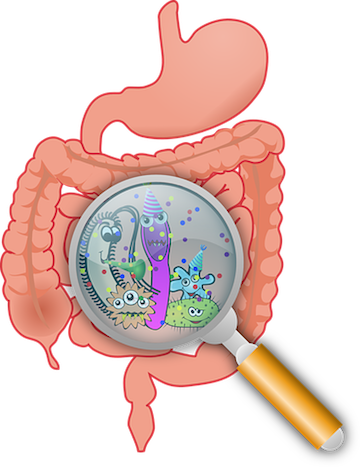
Glyphosate has many negative effects on crop health. The chemical does not stay on the plant to eventually dissipate with time. The chemical spreads through binding with minerals, which leaches into our ecosystem.
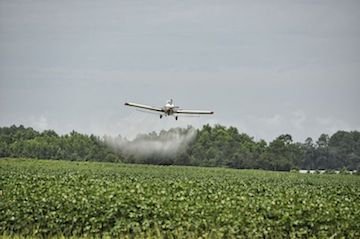
The glyphosate tolerant plants that are genetically modified to tolerate glyphosate take in glyphosate throughout their system, including the root system, which affects the soils community of microorganisms and future crops.
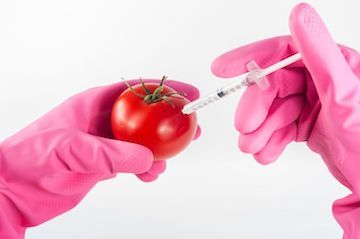
Two senior scientist, Don Huber, recently retired from Purdue University, and co-author G.S. Joha, in the USA have been researching ecological changes that might be caused by glyphosate and the Roundup Ready genetically modified agricultural system have been writing papers warning about long term negative impacts using chemicals.
Warnings include lost mineral content, reduced reproductivity, and sterilization of our soil. I remember reading several stories about people, domestic, and wild animals becoming seriously ill and even dying by the thousands from mold, fungus, and other diseases that used to be harmless.
It has come to light through independent research glyphosate has become a large factor in plant diseases and toxins. Don Huber a retired scientist from Purdue University co-authored with G.S. Gohal, from Purdue’s dept of botany and plant pathology, wrote a paper published in the October 2009 issue of European Journal of Agronomy that the huge increase in the use of glyphosate in the US can increase the severity of plant diseases. Which makes sense because it is known to kill plants through the shikimate pathway that is also part of all plants immune system and binds with minerals in the soil, cutting off important nutrients to the plants root system.
It is also been found glyphosate can increase the growth and toxicity of fungi like Fusarium, which effects a wide variety of crops. Big Ag has ignored the warnings so far, especially when it comes to plants and ecosystems outside of croplands affected by the spread of glyphosate

The fungus can infect wheat through the reduction of manganese uptake, making it vulnerable to fungal infections. Most wheat fields are sprayed with herbicide to reduce weeds and just before harvest, which causes vigorous growth and desiccation of the wheat head.

Glyphosate blocks the uptake of not just manganese, but also copper, calcium, zinc, and magnesium. This not only weakens the plant but it also weakens the mammals that use wheat as a food source. We all need these minerals for our health. I think this is why we not only see an increase in plant disease but also human, wild, and domestic animal diseases.
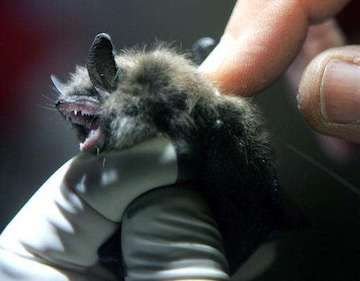
The increase in plant disease for the last 18 years are Fursarium, Phythium, Rhizocccctonia, and phytophthora, which are the cause in scabs or heads of corn, root rot in soybeans and crown rot in sugar beets. Fursarium fungus cases head blight in grain crops and produces a mycotoxin that has been introduced into our food chain. Hubar has reported there are now over 40 plant diseases caused by the use of glyphosate and the number is growing. It is apparent on so many levels that glyphosate is not environmentally benign as reported by the people who make a living from this herbicide.


 A link to My Blog
A link to My Blog
There is nothing beautiful than nature
Wow this was a nice read and very interesting article to say the least. While these herbicides being used on our precious crop supplies effect our soil environment, they are also directly impacting our water supply, as well. The chemicals enter our water supply, whether it be Groundwater or as surface runoff, and introduce levels of contamination that are not always purified by water treatment plants.
I was curious if you ran into anything regarding such chemicals entering our water sources when you were conducting any of your research along the way??
Regards from
@conradsuperb :-)
What is happening to our water ecosystems will be another paper @conradsuperb. The impact from big ag and industry is awful..
Oh, it most definitely is terrible, I will be looking forward to tuning in when you post about this.
Much Respect
Very in depth and interesting post. I try to use organic as much as possible and we have a good variety of choices here, however, it can be a bit more expensive; but, when it comes to one's health what better way to use money.
There is so much information on the net now it's very difficult to write an article that is simple while getting the whole picture. I think if we all consciously spend our money on products that are healthy we can change the markets and improve our health.
Así es team101.
Que mejor manera de invertir tu dinero que en uno mismo.
Si no nos cuidamos nosotros mismos AHORA,el día de mañana tendremos que dar nuestro dinero a otra persona para que nos cuide.Hay que recordar que los alimentos son nuestra medicina.
It's horrible how humans are dealing with nature, we are so far the biggest problem earth had never known before, it's really sad to see those bad impacts :(
Thank you for sharing!
I hope we can clean up our chemical dependency before we have total ecological crashes. People worry about climate change destroying our world, I think chemical use is way worse than co2 production.
both seem interdependent, the problem is how we gonna meet the needs of an increasing population, nowadays eating healthy is a privilege and very expensive in our modern society!!
I read healthy dirt is the biggest carbon sink we have, sterile dirt can't hold onto anything. Yeah, today is crazy.... when I was growing up buying package food was the sign of privilege. I grew up in rural Oregon and we gardened, fished, had livestock, and hunted for our food. That's what poor people did back in the day and we were really healthy too :p
There is more then just roundup lurking in our soils. We have to worry about this and supposed natural bacteria in soil which is the cause of parvo in dogs and valley fever in humans. Sorry if this was off subject. I enjoy your posts,RESPECT
These diseases could be linked to all the chemicals being used @fracasgrimm, it's been noted bacteria, fungus, viruses that used to be benign become toxic from overuse of industrial chemicals.
you are amazing as usual
i love you and like your pics
thanx dear for sharing this informative post
Thank you for reading my nerdy article @nourtawfiq, pictures are from pixabay, I have a link at the bottom of this article, they are free to use if you leave a link to the pixabay site.
thanx dear 😍
If I start eating turtles and frogs will It help me with my stomach problems??
I can't give you dietary advice, but I eat organic food as much as possible, I don't know if food is labeled where you come from @sadpotato, and it is also expensive because of high regulations fees that factory farming doesn't have to deal with, in fact factory farms are given money by the government here in America. I also don't eat refined food, processed foods, soda, alcohol, fruit juices, and I avoid sugar. I also eat fermented food like kimchi, sauerkraut, and assorted pickled food that hasn't been cooked. This help restore gut bacteria. I also filter my water using a pure water filter, there are many chemicals in our water now. I no longer have auto-immune system problems including headaches, weight problems, fatigue, and digestive issues. I suffer from fibromyalgia.
This is so great! You got the great point here......
Thank you @emilyben
Good post friend.
I like.
are you busy now. .. ???
I am very busy @safrijals, I have a family to care for, volunteer work, researching for articles, and creating art. I will try and remember to stop by and check out my friends blogs. But I will only up vote blogs that are well formatted and interesting and not just pictures with a few words.
Yes, I understand.
we have unwittingly destroyed vital microbes in the human gut through overuse of antibiotics and highly processed foods, we have recklessly devastated soil microbiota essential to plant health through overuse of certain chemical fertilizers, fungicides, herbicides, pesticides, @reddust
Correct @prosteemian!